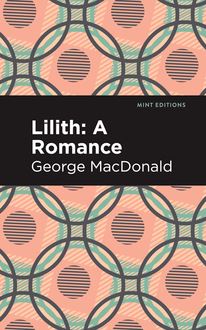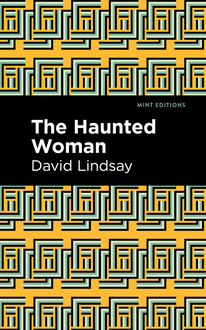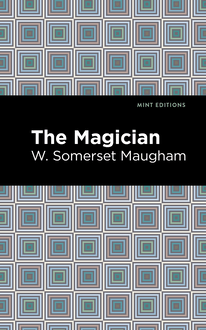-
 Univers
Univers
-
 Ebooks
Ebooks
-
 Livres audio
Livres audio
-
 Presse
Presse
-
 Podcasts
Podcasts
-
 BD
BD
-
 Documents
Documents
-
- Cours
- Révisions
- Ressources pédagogiques
- Sciences de l’éducation
- Manuels scolaires
- Langues
- Travaux de classe
- Annales de BEP
- Etudes supérieures
- Maternelle et primaire
- Fiches de lecture
- Orientation scolaire
- Méthodologie
- Corrigés de devoir
- Annales d’examens et concours
- Annales du bac
- Annales du brevet
- Rapports de stage
La lecture à portée de main
Vous pourrez modifier la taille du texte de cet ouvrage
Découvre YouScribe en t'inscrivant gratuitement
Je m'inscrisDécouvre YouScribe en t'inscrivant gratuitement
Je m'inscrisEn savoir plus
Vous pourrez modifier la taille du texte de cet ouvrage
En savoir plus

Description
The Haunted Woman (1922) is a fantasy novel by David Lindsay. Following the commercial failure of his critically acclaimed novel A Voyage to Arcturus (1920), Lindsay hoped to achieve financial stability with a more conventional tale of suspense and the occult. Although he once more failed to reach a popular audience, Lindsay produced a powerful story of alternate worlds, the burden of convention, and the nature of human desire. “Never self-conscious, never embarrassed, always quiet and rather ennuyé, she fascinated by the very strength of her silence, which, it was abundantly clear, had nothing in common with stupidity. She had already declined three offers of marriage, before Marshall had appeared on her horizon.” Isbel Loment has always cherished her independence, never consenting to tie her fate to that of a man, especially not for love. Now engaged to successful underwriter Marshall Stokes, she finds herself nearing the end of the rootless lifestyle she has led since the age of sixteen, when the death of her father left her a ward of an eccentric aunt. While on vacation at an ancient estate in the hills of Sussex, Isbel discovers a mysterious staircase leading to three identical doors. Choosing one, she is transported to a mirror world where, though the details are lost upon leaving, she seems to be encountering her host Henry Judge. With a beautifully designed cover and professionally typeset manuscript, this edition of David Lindsay’s The Haunted Woman is a classic of British literature reimagined for modern readers.
Sujets
Informations
| Publié par | Mint Editions |
| Date de parution | 16 novembre 2021 |
| Nombre de lectures | 0 |
| EAN13 | 9781513223551 |
| Langue | English |
Informations légales : prix de location à la page 0,0500€. Cette information est donnée uniquement à titre indicatif conformément à la législation en vigueur.
Extrait
The Haunted Woman
David Lindsay
The Haunted Woman was first published in 1922.
This edition published by Mint Editions 2021.
ISBN 9781513299853 | E-ISBN 9781513223551
Published by Mint Editions ®
MintEditionBooks .com
Publishing Director: Jennifer Newens
Design & Production: Rachel Lopez Metzger
Project Manager: Micaela Clark
Typesetting: Westchester Publishing Services
C ONTENTS I. M ARSHALL R ETURNS FROM A MERICA II. T HE V ISIT TO R UNHILL C OURT III. I N THE U PSTAIRS C ORRIDOR IV. T HE L EGEND OF U LF’S T OWER V. I SBEL S EES H ERSELF VI. J UDGE A PPEARS ON THE S CENE VII. T HE D INNER- P ARTY VIII. T HE P ICNIC IX. W HAT H APPENED IN THE S ECOND R OOM X. B LANCHE S PEAKS O UT XI. I SBEL V ISITS W ORTHING XII. M RS. R ICHBOROUGH’S E RRAND XIII. T HE L UNCH AT THE M ETROPOLE XIV. I N THE S ECOND C HAMBER A GAIN XV. T HE M USIC OF S PRING XVI. T HE M USICIAN D EPARTS XVII. I N THE T WILIGHT XVIII. A C ATASTROPHE XIX. T HE F LASH OF D AY XX. M ARSHALL’S J OURNEY
I
M ARSHALL R ETURNS FROM A MERICA
I n the latter half of August, Marshall Stokes went to New York, in order to wind up the estate of the lately-deceased brother of the lady to whom he was betrothed. As a busy underwriting member of Lloyd’s, he could ill afford the time—he was over there for upwards of a fortnight—but no alternative had presented itself. Miss Loment had no connections in America, she possessed no other relations, except a widowed aunt, with whom she lived, and it was clearly out of the question for either of the two ladies to travel across in person, to examine books, interview lawyers, deal with claims, etc.—they had not the necessary business experience. The task, therefore, had devolved on Marshall. He had not been able to conclude the business, but he had put it in a fair way of being concluded, and had appointed a reputable firm to act as Miss Loment’s representatives. The estate was worth forty thousand dollars.
Upon his return to London about the middle of September he found that his friends had departed for Brighton; Mrs. Moor—the aunt—apparently was feeling rundown. A perfumed little note from Isbel pressed him to join them there. Marshall was unable to leave town immediately, but two days later, on Friday afternoon, he abruptly shut down work for the week-end, and motored down by himself in glorious weather. His heart was high, and as he ran through the richly gleaming Sussex country, overspread with a blue, plum-like bloom, arising from the September mists, he thought that he had never seen anything quite so lovely. The sun was brilliant, and there was a crisp, invigorating breeze.
He dined the same evening with Isbel and her aunt, in the public room at the Hotel Gondy, where they were staying. Neither of the ladies attracted as much attention as Marshall himself. His large, loose, powerful figure went admirably with evening dress, while his full-blooded face, still covered with ocean tan, was peculiarly noticeable for its heavy, good-humored immobility; his very hands, huge and crimson, yet not vulgar, marked him out from other men. Isbel kept alternately glancing at him and smiling down at her plate with pleasure, apropos of nothing. Most of the talking came from him. Reserving business until afterwards, he entertained his friends during the meal with his personal experiences in the United States, the relation of which was rendered more piquant by a free adoption of the very latest slang. Aunt and niece were both perfectly acquainted with America, but they had the tact to keep this to themselves.
Isbel was dressed in black, on account of her brother’s death. The gown, according to the prevailing fashion, was cut low across her somewhat full bosom, but lower still in the back. She was neither plain nor handsome; a first glance showed an ordinarily attractive girl of five-and-twenty, and nothing more. Her face was rather short and broad, with thick but sensitive features, a lowish forehead, and a dull, heavy skin, rendered almost unnaturally pale by the excessive quantity of powder she employed. The tranquillity of her expression was rarely broken by an emotion or a smile, but whenever this did happen it was like a mask lifting. The full, grey-black eyes as a rule appeared a trifle bored and absent, but occasionally they narrowed into a subtle and penetrating glance which nearly resembled a stab. Her hair was long and fine, but mouse-coloured. She was short, rather than tall, and somewhat too broad-hipped for modern ideas of beauty; nevertheless, her person was graceful and well-covered, she moved with style, while her hands and feet were particularly small and aristocratic. She affected little jewelry.
She commanded all her friends, and was adored by the two or three nearest to her. Further, no matter what company she was in, and although she never exerted herself to win people, before the evening was out her personality always succeeded in making itself felt, and she became the centre of interest to men and women alike. Never self-conscious, never embarrassed, always quiet and rather ennuye, she fascinated by the very strength of her silence, which, it was abundantly clear, had nothing in common with stupidity. She had already declined three offers of marriage, before Marshall had appeared on her horizon. Curiously enough, these offers had all been made by men very much older than herself.
She had a queer habit, while sitting, of constantly, though quite unconsciously, attending her person. She would keep putting her hand to her hair, adjusting her skirt, feeling her waist-band, altering the position of a necklace or bracelet, etc. It was not vanity, but a sort of nervous irritability, which prevented her from continuing still. Her aunt frequently cautioned her against the fault, which was one of those that grow by indulgence; Isbel would deny the offence, and five minutes later would begin to repeat it. The strange thing was that a good many persons of the other sex liked to watch her toying with her garments in this way. She was perfectly well aware of the fact, and it rather disgusted her.
Mrs. Moor, the third member of the party, had just entered her sixtieth year. She was—as already mentioned—a widow. Her husband, a stockbroker in a small way, had during the rubber boom amassed a sudden fortune, which fell to her intact upon his death in 1911. By shrewd speculation she had increased it considerably since, and could now be regarded as a wealthy woman. Isbel’s father, who had died nearly at the same time, was her younger brother. He was a widower, with only one other child, a son—the one who had recently died in New York. Isbel, who at that time was sixteen became Ann Moor’s ward, under the will. She was at once removed from school—rather against her desire—and the two women commenced the more or less vagrant existence together, which they had continued ever since, drifting from hotel to hotel in all quarters of the globe. It was a free life, and Isbel came to grow extremely fond of it. In any case, her own money was not sufficient to support her, so that in a manner she was dependent upon her aunt’s whims. It only remains to add that she tyrannised over the older woman in all her personal relations, and that the latter not only permitted this, but even seemed to expect it as a natural thing.
Mrs. Moor was short, erect, and dignified, with a somewhat stiff carriage. Her face, which resembled yellow marble, bore a consistently stern and dauntless expression, rarely relaxing into a smile. She was in complete possession of all her faculties, and her health, generally speaking, was good. The art of dressing she did not understand; Isbel selected her garments for her, while her maid told her when and how to put them on. She was, in fact, one of those eccentric women who ought to have been born men. Her tastes were masculine, her knowledge chiefly related to masculine topics. She knew, for instance, how to invest her money to the best advantage, how to buy and sell land, and how to plan a serviceable house; but what she did not know was how to flatter men, how to talk gracefully about nothing, how to interest herself in the minute details of another woman’s household, or how to identify herself in thought with the members of the upper circles of society. She bowed to no authority, and took pride in speaking her mind in whatever company she might find herself. The natural consequence was that, while her friends esteemed her highly for her genuine qualities, they were more than a little frightened of her, and never really regarded her as one of themselves. It sometimes dawned on her that she was lonely. On such occasions she sought solace in music. She loved everything classical, Beethoven in particular she venerated, but the history of music came to an end, for her, with Brahms. Weeks would pass without her once opening the piano, and then a sudden, almost passionate yearning would seize her, when she would sit down and play by the hour together. Her execution was bold, slow, rather coarse, full of deep feeling.
The two women were excessively fond of each other, thought neither cared to show it. Temperamentally, however, they were so antagonistic that frequent quarrels were inevitable. Whenever this happened, the aunt ordinarily expressed herself in vigorous language, while Isbel, on the other hand, would become sullen and vindictive, saying little, but requiring time to be appeased.
As soon as dinner was concluded, the trio retired to Mrs. Moor’s private apartment on the first floor. The waiter brought up coffee and Chartreuse. The room was handsomely appointed, a distinctive note being lent to it by the bowls of pale chrysanthemums with which it was profusely and artistically decorated—Isbel’s labour of love. The evening was chilly, and a small fire was burning in the grate. They brought their chairs forward, so as to form a semi-circle round the hearth, Isb
-
 Univers
Univers
-
 Ebooks
Ebooks
-
 Livres audio
Livres audio
-
 Presse
Presse
-
 Podcasts
Podcasts
-
 BD
BD
-
 Documents
Documents
-
Jeunesse
-
Littérature
-
Ressources professionnelles
-
Santé et bien-être
-
Savoirs
-
Education
-
Loisirs et hobbies
-
Art, musique et cinéma
-
Actualité et débat de société
-
Jeunesse
-
Littérature
-
Ressources professionnelles
-
Santé et bien-être
-
Savoirs
-
Education
-
Loisirs et hobbies
-
Art, musique et cinéma
-
Actualité et débat de société
-
Actualités
-
Lifestyle
-
Presse jeunesse
-
Presse professionnelle
-
Pratique
-
Presse sportive
-
Presse internationale
-
Culture & Médias
-
Action et Aventures
-
Science-fiction et Fantasy
-
Société
-
Jeunesse
-
Littérature
-
Ressources professionnelles
-
Santé et bien-être
-
Savoirs
-
Education
-
Loisirs et hobbies
-
Art, musique et cinéma
-
Actualité et débat de société
- Cours
- Révisions
- Ressources pédagogiques
- Sciences de l’éducation
- Manuels scolaires
- Langues
- Travaux de classe
- Annales de BEP
- Etudes supérieures
- Maternelle et primaire
- Fiches de lecture
- Orientation scolaire
- Méthodologie
- Corrigés de devoir
- Annales d’examens et concours
- Annales du bac
- Annales du brevet
- Rapports de stage




















